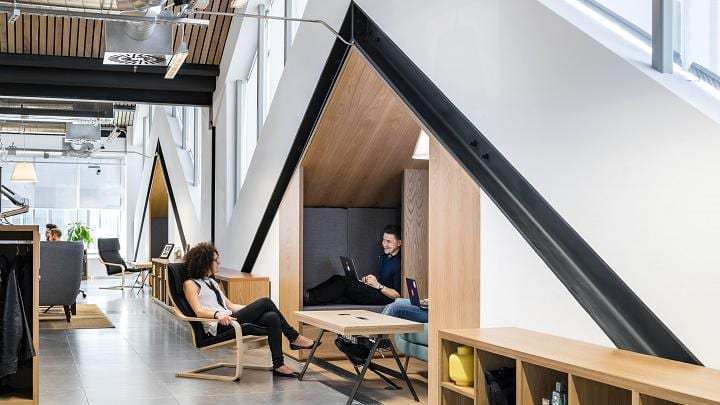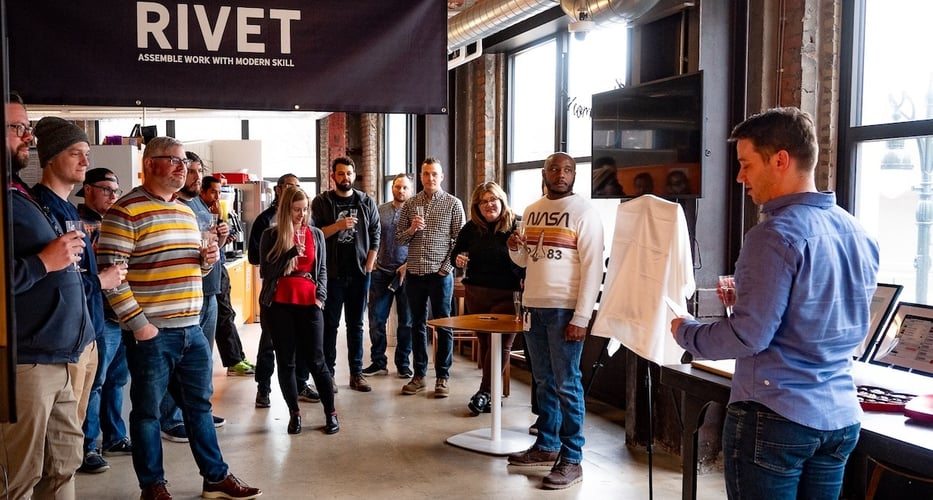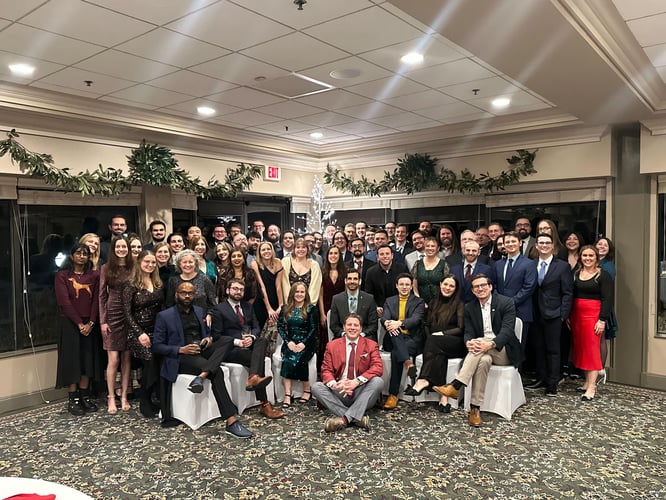We hope you’ve heard this advice before, and taken it to heart: during a job interview, remember that you’re interviewing the company just as much as they’re interviewing you.
One important aspect to uncover during the interview process is company culture. A company’s culture is made up of the values, beliefs, attitudes, and behaviors shared by a group of people. And it can make or break your experience as an employee. It’s the reason one of the cornerstones of our mission is to match job seekers with employers based on culture fit, not just experience.
But what does a conversation about work culture during an interview actually look like? What types of questions will reveal a company’s true underbelly?
Here’s what an expert has to say
We linked up with Grace Cormier, an expert in applied positive psychology in the workplace, to find out. Grace currently works alongside Adam Grant at Wharton People Analytics, where they do novel research with organizations in the areas of collaboration and culture, well-being, and sustainable behavior change.
Meet Grace:

She blew us away with what she had to say, so we’re excited to share with you.
Ask about these six traits
Grace said that depending on what you’re looking for, she’d encourage job seekers to ask about any one of the following characteristics, which are all indicators of a healthy culture.
1. Empowered employees
“Companies that thrive focus on building a culture where employees are empowered to contribute. Everyone has to feel like they can use their voice,” she said.
“Having a voice and feeling heard is what makes us feel valued. We feel like meaningful contributors, and as such, we’re able to find meaning in our work.”
It all boils down to trust, she said. “Employees need to trust that senior leaders up the food chain will listen. That way, people are comfortable speaking up about their ideas, debating solutions, and pointing out things that might be detrimental to the growth and development of an organization.”
Questions to ask during your next job interview:
- What communication outlets exist here for people to share and build on ideas?
- How is the company structured? What tools or processes exist to encourage communication between teams and across hierarchies?
- Tell me about a time the organization implemented an idea from someone lower down the food chain?
2. Flexible work styles
There’s a lot of emerging literature that shows that people who have autonomy over where they work and when they work are more likely to be satisfied and productive, Grace shared. It’s a win-win for the organization and the employee.
“What work conditions are best for you? What promotes your creativity and effectiveness? Thinking about this is an important part of finding a work environment where you’ll flourish. Know what you’re looking for so you know what to ask about in a job interview.”
Questions to ask during your next job interview:
- What are examples of working styles that wouldn’t work well here? Why?
- What about styles that would work here? Do you have any examples?
- What resources or systems are available to help teammates who work remotely?
- What time does a work day start and end for a typical employee?
3. Transparency around mistakes and concerns
This one ties back to the importance of trust, Grace said.
“People need to be able to speak up about mistakes they make, or the concerns they have. Usually, people feel more comfortable doing this in a psychologically safe environment—where they don’t feel like there will be negative consequences to their image or career. When people don’t feel comfortable communicating their mistakes, sharing their concerns, or asking for help, problems can escalate. For some organizations, this can have dire consequences.”
Grace added that transparency around mistakes is a cultural trait that should be considered especially important to startups. Problems cost money, and expensive mistakes can sink young companies.
“Plus,” she added, “reporting concerns early can actually lead to better results. Amy Edmondson has done pioneering work on this idea. In the medical field, for example, she’s found evidence to show that teams that have psychological safety report more errors, and as a result, have better patient outcomes.”
Questions to ask during your next job interview:
- How do you coach employees to handle concerns they’re having about a project? What are the avenues they have for getting help?
- How are mistakes handled here? What is an example of the biggest mistake someone made, and how did people respond?
4. Diversity of thought
Diversity is a good thing. We know this. But Grace encouraged us to broaden our idea of what diversity looks like.
“Usually when we think about diversity we think in terms of culture, race, gender, and sexuality,” Grace said. “While that’s important, another way to measure the diversity of a company is by looking at diversity of thought and skill set.”
A team that brings a diverse range of skills and experience to the table is a team that can solve problems creatively and push ideas to new heights. It’s a signal of vitality rather than stagnation.
“It also provides a unique opportunity for professional growth. It allows us to see our colleagues as knowledge centers to learn from,” Grace added.
Questions to ask during your next job interview:
- What skill sets already exist on your team, and which are you focused on adding?
- How diverse is the experience other team members are coming in with? What are people’s backgrounds?
- My strengths are in X, Y, and Z, but I’m also interested in getting more experience in A and B. How does that fit into the role you’re trying to fill?
5. Communication about communication
Email. Slack. Text Messages. Comments. The channels for communication are endless and growing. While this can be a major advantage for a fast growing startup, digital communication comes with its own set of challenges. Rules of engagement can be ambiguous.
People often have differing styles and preferences about how it should be done. And that’s okay, Grace said.
“One of the ideas that we’ve been thinking about studying is how understanding people's work styles and preferences affect collaboration. People often don’t have an open and honest conversation about their preferred approach to work and communication. But preferences and triggers exist, and we need to talk about them.”
When they’re not addressed, they can block collaboration and personal work satisfaction.
“There has to be a way for everyone on a team to understand the best way to collaborate within that team,” she added. “Think in terms of a user profile or a user manual. If I’m on your team and I read your user manual, what would it say about how you work best? Are you more responsive to emails or Slack? Do you prefer not to get calls after 7 PM because you’re spending time with your family? Do you want to be copied on every email? If your door is closed, does that mean you’re unavailable? The underlying idea is that a healthy cultural norm would be to talk openly about communication preferences.”
Questions to ask during your next job interview:
- If you were going to give me a user manual about your team, what would it say about preferred communication styles?
- How does your team currently communicate with each other?
- What does team collaboration usually look like here?
6. Values are seen in action
Any number of companies can be really good at talking the talk. But what does their walk look like?
Grace said, “A lot of people have espoused values. That is, values they say are important. But when you look at their behavior, nothing aligns with that espoused value. So if you’re thinking of working with a company that says its mission is to help millennials reduce their carbon footprint, what is that company doing on a day-to-day basis to reduce their own carbon footprint? Or, if your company says it values open communication, what does the organization do daily to foster it?”
Companies with the healthiest work cultures are ones where their values can be seen at every level of the organization: from customer service all the way up to the C-suite.
Questions to ask during your next job interview:
- What values are driving this company forward, and how often are they discussed?
- What day-to-day things happen here that are indicators of those values?
Start your search for a company you’ll love
At purpose.jobs, our goal is to help talented people find jobs with startups. Specifically, startups that understand the importance of nurturing healthy work cultures.
If you’re looking for a new start at a company that will appreciate you, sign up to join our talent community. It’s free!
One application gets you in front of hundreds of startup founders and companies located in and around Detroit, including Ann Arbor.







.png?width=50&name=Erin%20Gregory%20(1).png)
